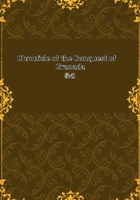
第93章
Seeing the peril of these troops and the general obstinacy of the fight, the king ordered the royal standard to be advanced, and hastened with all his forces to the relief of the count de Cabra. At his approach the enemy gave way and retreated toward the bridge.
The two Moorish commanders endeavored to rally their troops and animate them to defend this pass to the utmost: they used prayers, remonstrances, menaces, but almost in vain. They could only collect a scanty handful of cavaliers; with these they planted themselves at the head of the bridge and disputed it inch by inch. The fight was hot and obstinate, for but few could contend hand to hand, yet many discharged crossbows and arquebuses from the banks. The river was covered with the floating bodies of the slain. The Moorish band of cavaliers was almost entirely cut to pieces; the two brothers fell, covered with wounds, upon the bridge they had so resolutely defended. They had given up the battle for lost, but had determined not to return alive to ungrateful Granada.
When the people of the capital heard how devotedly they had fallen, they lamented greatly their deaths and extolled their memory: a column was erected to their honor in the vicinity of the bridge, which long went by the name of "the Tomb of the Brothers."
The army of Ferdinand now marched on and established its camp in the vicinity of Granada. The worthy Agapida gives many triumphant details of the ravages committed in the Vega, which was again laid waste, the grain, fruits, and other productions of the earth destroyed, and that earthly paradise rendered a dreary desert.
He narrates several fierce but ineffectual sallies and skirmishes of the Moors in defence of their favorite plain; among which one deserves to be mentioned, as it records the achievements of one of the saintly heroes of this war.
During one of the movements of the Christian army near the walls of Granada a battalion of fifteen hundred cavalry and a large force of foot had sallied from the city, and posted themselves near some gardens, which were surrounded by a canal and traversed by ditches for the purpose of irrigation.
The Moors beheld the duke del Infantado pass by with his two splendid battalions--one of men-at-arms, the other of light cavalry armed "a la gineta." In company with him, but following as a rear-guard, was Don Garcia Osorio, the belligerent bishop of Jaen, attended by Francisco Bovadillo, the corregidor of his city, and followed by two squadrons of men-at-arms from Jaen, Anduxar, Ubeda, and Baeza.* The success of last year's campaign had given the good bishop an inclination for warlike affairs, and he had once more buckled on his cuirass.
*Pulgar, part 3, cap. 62.
The Moors were much given to stratagem in warfare. They looked wistfully at the magnificent squadrons of the duke del Infantado, but their martial discipline precluded all attack: the good bishop promised to be a more easy prey. Suffering the duke and his troops to pass unmolested, they approached the squadrons of the bishop, and making a pretended attack, skirmished slightly and fled in apparent confusion. The bishop considered the day his own, and, seconded by his corregidor Bovadillo, followed with valorous precipitation. The Moors fled into the "Huerta del Rey," or Orchard of the King; the troops of the bishop followed hotly after them.
When the Moors perceived their pursuers fairly embarrassed among the intricacies of the garden, they turned fiercely upon them, while some of their number threw open the sluices of the Xenil. In an instant the canal which encircled and the ditches which traversed the garden were filled with water, and the valiant bishop and his followers found themselves overwhelmed by a deluge.* A scene of great confusion succeeded. Some of the men of Jaen, stoutest of heart and hand, fought with the Moors in the garden, while others struggled with the water, endeavoring to escape across the canal, in which attempt many horses were drowned.
*Pulgar.
Fortunately, the duke del Infantado perceived the snare into which his companions had fallen, and despatched his light cavalry to their assistance. The Moors were compelled to flight, and driven along the road of Elvira up to the gates of Granada.* Several Christian cavaliers perished in this affray; the bishop himself escaped with difficulty, having slipped from his saddle in crossing the canal, but saving himself by holding on to the tail of his charger. This perilous achievement seems to have satisfied the good bishop's belligerent propensities. He retired on his laurels (says Agapida) to his city of Jaen, where, in the fruition of all good things, he gradually waxed too corpulent for his corselet, which was hung up in the hall of his episcopal palace, and we hear no more of his military deeds throughout the residue of the holy war of Granada.**
*Pulgar.
**"Don Luis Osorio fue obispo de Jaen desde el ano de 1483, y presidio in esta. Iglesia hasta el de 1496 in que murio en Flandes, a donde fue acompanando a la princesa Dona Juana, esposa del archiduque Don Felipe."--"Espana Sagrada," por Fr. M. Risco, tom.
41, trat. 77, cap. 4.
King Ferdinand, having completed his ravage of the Vega and kept El Zagal shut up in his capital, conducted his army back through the Pass of Lope to rejoin Queen Isabella at Moclin.
The fortresses lately taken being well garrisoned and supplied, he gave the command of the frontier to his cousin, Don Fadrique de Toledo, afterward so famous in the Netherlands as the duke of Alva.
The campaign being thus completely crowned with success, the sovereigns returned in triumph to the city of Cordova.